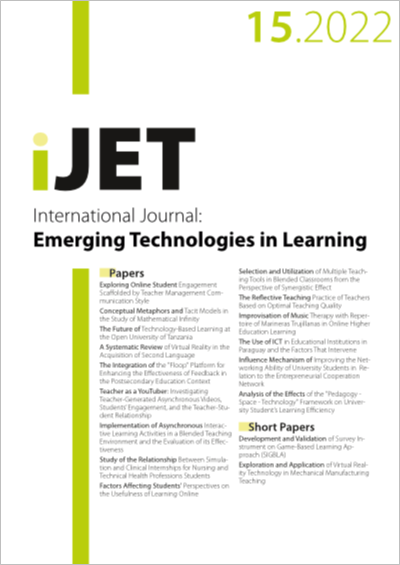Study of the Relationship Between Simulation and Clinical Internships for Nursing and Technical Health Professions Students
DOI:
https://doi.org/10.3991/ijet.v17i15.31827Keywords:
simulation, internship, relationship, teaching, learning, practice, nursing studentAbstract
Paramedical training field allows the integration of practical and theoretical knowledge, the mobilization of knowledge offers the possibility to test the skills necessary for the exercise of the profession. Nursing education is organized based on the principle of alternating between theoretical learning in classrooms, and practical learning in the form of simulation sessions in laboratories and internships in healthcare institutions. Indeed, through our article we study the relationship between these two teaching/learning practical methods applied in nursing and technical health professions students’ education. Our study is of the descriptive correlational type, we carried it out through a survey that we conducted with a sample of 289 students, using a questionnaire developed via the Google Forms platform; the data we collected were analyzed using the descriptive statistics method, in frequencies and percentages, presented in the form of figures and simple and bi-variate (Contingency) tables. The main results of this study showed that (a) 59.17% were moderately satisfied with the alternation between simulation sessions and internships; (b) 48% stated that simulation as a method of learning sometimes reflects the reality of internships; (c) 52% announced that it is often possible to transfer the learning acquired through simulation into practical gestures during clinical internships, and (d) 90.66% stated that simulation learning could not replace internships. As a result, this study has concluded that nursing training is based on practical teaching / learning which materializes in simulation activities and clinical internships which are strongly correlated.
Downloads
Published
How to Cite
Issue
Section
License
Copyright (c) 2022 Pr Abdelilah MERABTI, Pr Abdelrhani EL ACHQAR, Pr Tarik SQALLI HOUSSAINI, Pr Fatiha KADDARI

This work is licensed under a Creative Commons Attribution 4.0 International License.



